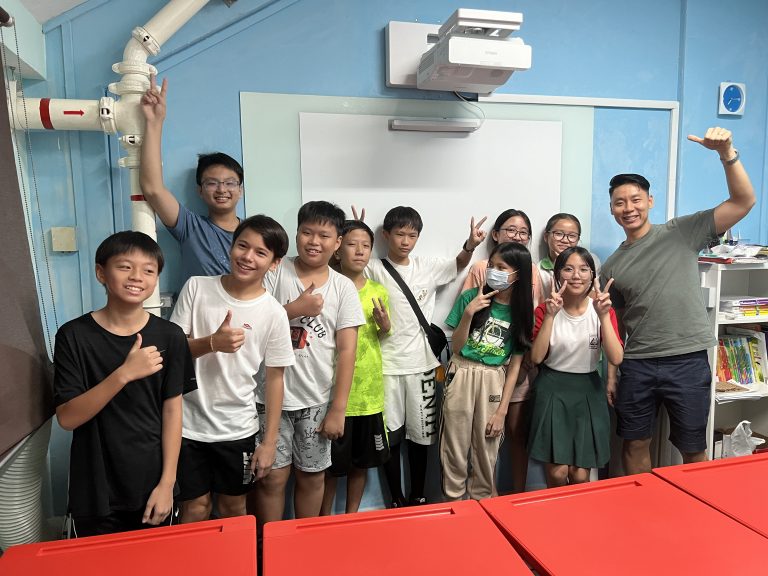
Top PSLE Preparation Tips: How To Score Well In PSLE Exam
The Primary School Leaving Examination (PSLE) is a significant milestone in every Singaporean student’s academic journey. It not only determines secondary school placement but also

The Primary School Leaving Examination (PSLE) is a significant milestone in every Singaporean student’s academic journey. It not only determines secondary school placement but also plays a vital role in shaping future learning paths. For parents and students alike, preparing for PSLE can feel overwhelming. However, with the right strategies and mindset, success is entirely achievable.
At Stepping Stones Learning Centre, we understand the challenges Singaporean families face during this critical period. This guide offers expert-backed PSLE preparation tips that help students study smarter, not harder, ensuring they score well and confidently approach the exam.
Early preparation allows students to build a robust understanding of fundamental concepts before diving into complex topics. PSLE is not just about memorisation, it’s about comprehension, application, and problem-solving across all subjects. Students who have a consistent learning routine throughout Primary 4 and 5 tend to perform better during PSLE year, as they are already familiar with the syllabus and exam expectations.
Parents play a crucial role in creating a supportive environment that fosters consistent study habits. This includes setting clear academic goals, encouraging a growth mindset, and working closely with tutors or enrichment centres when necessary. Early planning also helps reduce last-minute stress and panic.
If you’re unsure where to start, our PSLE Tuition at Stepping Stones provides structured programmes that set your child on the right path from the outset.
A study plan is only effective if it’s realistic and sustainable. Prioritise subjects based on your child’s strengths and weaknesses. Spread revision over months, incorporating short sessions with breaks to avoid burnout. Make sure your child gets adequate leisure and family time to maintain a healthy work-life balance.
Mock exams simulate the real test environment, allowing students to practise time management and build exam stamina. It also identifies gaps in knowledge that need attention. Regular practice under timed conditions helps reduce anxiety and boosts confidence for the actual exam day.
Rather than re-reading notes passively, active recall forces students to retrieve information from memory, reinforcing learning more effectively. Combined with spaced repetition, a method that increases intervals between reviewing material, these techniques have been shown to significantly improve retention and performance.
Success in English lies in mastering different components:
Regular exposure to good language use, along with detailed feedback from tutors or our qualified instructors, can dramatically improve performance.
Mathematics in PSLE focuses heavily on problem-solving rather than rote calculation. Here’s what to focus on:
Our PSLE specialists at Stepping Stones Learning Centre use tailored techniques to simplify tough concepts and improve analytical skills.
Science is about applying concepts to real-world phenomena. Effective preparation includes:
Encourage your child to ask “why” and “how” questions; they’re often the key to mastering the Science paper.

Exam anxiety is common among Primary 6 students, but manageable with the right coping skills. Practice mindfulness exercises such as deep breathing or guided meditation. Encourage journaling to help your child articulate worries. Reassure them that exams are just one part of life’s journey, not a final verdict.
A healthy lifestyle is the backbone of academic performance. Ensure your child:
These habits improve cognitive function and emotional regulation, key factors during high-pressure periods like PSLE.

Sometimes, home study alone isn’t enough. Personalised instruction from experienced educators can make a world of difference. Tuitions offer:
Located conveniently in Bukit Panjang, Singapore, Stepping Stones Learning Centre has a proven track record of helping students improve their scores. Our passionate educators use data-driven teaching methods tailored to each child’s needs. We offer focused PSLE Tuition that breaks down complex topics into manageable lessons while boosting confidence and curiosity.
Ensure your child is ready with:
Discuss expectations positively and remind them to stay calm, breathe, and trust their preparation.
Success in the PSLE is not just about studying harder, it’s about studying smarter. With early planning, effective study strategies, and emotional support, your child can walk into the exam room with confidence. Leverage the experience and support from educators who care, like the team at Stepping Stones Learning Centre, to guide your child every step of the way.
If you’re ready to take your child’s preparation to the next level, explore our dedicated PSLE Tuition Services or contact us today.
To ace the PSLE, students need a combination of consistent revision, effective time management, and smart study techniques. Start preparation early, focus on understanding key concepts, and practise with past-year papers. Use active recall and spaced repetition for memory retention. It’s also helpful to attend structured revision programmes, like our PSLE Tuition programme, which provides targeted support across all subjects.
The PSLE can be challenging due to its rigorous curriculum and its role in determining secondary school placement. However, with consistent preparation, structured study habits, and emotional support from parents and teachers, most students can perform well. Difficulty is relative to preparation; well-prepared students often find it manageable.
The new PSLE scoring system introduced in 2021 replaces the T-score with Achievement Levels (ALs). Each subject is graded from AL1 (best) to AL8 (lowest), and the overall PSLE score is the sum of the four subject ALs, ranging from 4 to 32. A lower total score indicates better performance. This system aims to reduce excessive academic pressure and encourage holistic development.
Answering techniques for PSLE Science include using key scientific terms, writing in full sentences, and applying the CER (Claim, Evidence, Reasoning) structure for open-ended questions. Students should avoid vague answers, underline keywords in questions, and always explain their reasoning clearly. Regular practice and review of past papers help reinforce these strategies.
To improve English oral skills for PSLE, students should practise reading aloud daily with proper intonation and pacing. For the spoken interaction component, they should develop the ability to express opinions clearly, support answers with personal experiences, and maintain eye contact. Engaging in daily conversations and reviewing sample oral videos can also boost fluency and confidence.

The Primary School Leaving Examination (PSLE) is a significant milestone in every Singaporean student’s academic journey. It not only determines secondary school placement but also

The Primary School Leaving Examination (PSLE) is a significant academic milestone for children in Singapore. For many parents, it marks the beginning of a crucial
